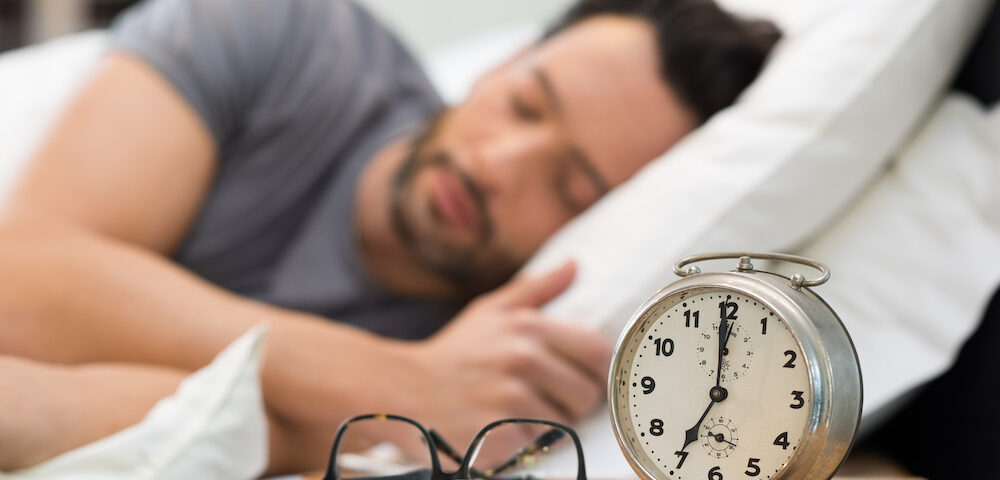
The Importance of Water for Your Mind
January 24, 2021
Simple Ways to Boost Your Confidence
January 29, 2021“It is a common experience that a problem difficult at night is resolved in the morning after the committee of sleep has worked on it.”
-John Steinbeck
Sleep can be one of the best medicines for our bodies. Each night is a gift that we can cherish and treat as sacred. When we sleep, we wind down and set no expectations for ourselves except to relax and dream. However, many of us do not get enough sleep or, more accurately, enough restful sleep. When we are in recovery from addiction, our sleep cycles may need time to adjust. We might even be surprised at how little we were sleeping or resting before treatment!
As you sleep, your brain and your body get the chance to revitalize themselves. Brain chemicals can become replenished during sleep. Bodily damage or daily “wear and tear” can be repaired during sleep. Your heart rate slows down, and everything in your body takes a “time-out.” Sleep is different from conscious rest and relaxation. Your body will enter a state of “hibernation” for hours as you get ready to take on a new day.
Sleep: A “How-To” Guide
Drugs and alcohol can impact the overall quality of our sleep. We might use stimulants and struggle to relax and get the deep, restorative sleep we need. Sedatives, like alcohol, can be deceiving. Alcohol may make us feel relaxed or provide the illusion that we are sleeping better, while the alcohol is really prohibiting the sleep cycle from occurring at its maximum capacity. During early recovery and detox, maintaining your physical health is paramount to success. We need all the strength we can get to build our resiliency. Keep the following tips in mind to set up your “sleep space” for a restful night of sleep:
- Dedicate Your Bed for Sleep
- Our minds make simple associations with our environments.
- Use your bed as a space for relaxation, sleep, and sex.
- While some of us are working from home now due to the pandemic, keep work off of your bed.
- Your brain will not be able to differentiate between sleep time and work time.
- Use Comfortable, Clean Bedding
- Change and clean your sheets regularly, at least once or twice each month.
- If you have allergies or asthma, you might want to clean your sheets more frequently to rid your bedding of allergens.
- Keep an extra blanket near your bed to use if you get cold at some point during the night.
- Try body pillows or weighted blankets to decrease your anxiety at bedtime.
- Keep Screens Out of the Bedroom
- Some people keep a television in the bedroom; however, watching TV or spending time on screens before bedtime can make it difficult to wind down.
- The light emitted from screens activates our brains and can keep us awake after we turn them off.
- Try to take a break from screens an hour before bed. Opt for other activities, like reading or journaling.
- Wake Up and Go to Bed Around the Same Time Each Day
- By setting up a routine, your body and mind will know what to expect.
- When our bodies work on a rhythm and cycle, we can rest more efficiently, as our bodies can predict our daily activities.
- Try to Minimize Noise Distractions and Extra Light.
- Close your curtains to block out excess light.
- Consider blocking light from underneath doorways with a draft blocker or a rolled-up towel if light “creeps in” from adjacent rooms.
- Try earplugs to minimize concussive noises if you live in a noisy environment.
- Since earplugs do not block out all sound, you can use a sound machine to add white noise to your sleep environment. White noise helps our minds relax and can “block” out additional sounds by focusing our attention elsewhere.
Treat sleep like the gift that it is. During recovery, you might have issues getting into a new sleep routine. Remember that you are retraining your mind and your body to engage in healthy habits. At first, you might struggle to stick to a schedule and routine; however, the sooner you adapt to a routine, the sooner you will begin to feel the benefits of a good night’s rest. Introduce other healthy habits, like exercising, drinking plenty of water, and having healthy, nutritional meals into your daily schedule. These practices can further enhance your body’s ability to gain the therapeutic benefits of sleep. Change your sleeping habits to increase your likelihood of success in recovery!
Getting a good night’s rest and adequate sleep can help you during your treatment for addiction. When using drugs or alcohol, you might not be getting the restful and restorative sleep that your body needs. As you detox in early recovery, be sure to improve your sleep habits to maximize your strength and resiliency throughout your treatment. You might be surprised at how much of an impact sleep has on your mood and outlook! Create a space for sleeping that makes you feel peaceful. Minimize distractions and dedicate your time to yourself for rest. Find peaceful activities to calm yourself down before going to bed and limit phone usage before going to sleep. If you or a loved one are struggling with addiction and need help, The Kimberly Center is here for you. We offer treatment in a peaceful and calm resort-like atmosphere. Call our staff today at (855) 452-3683.




